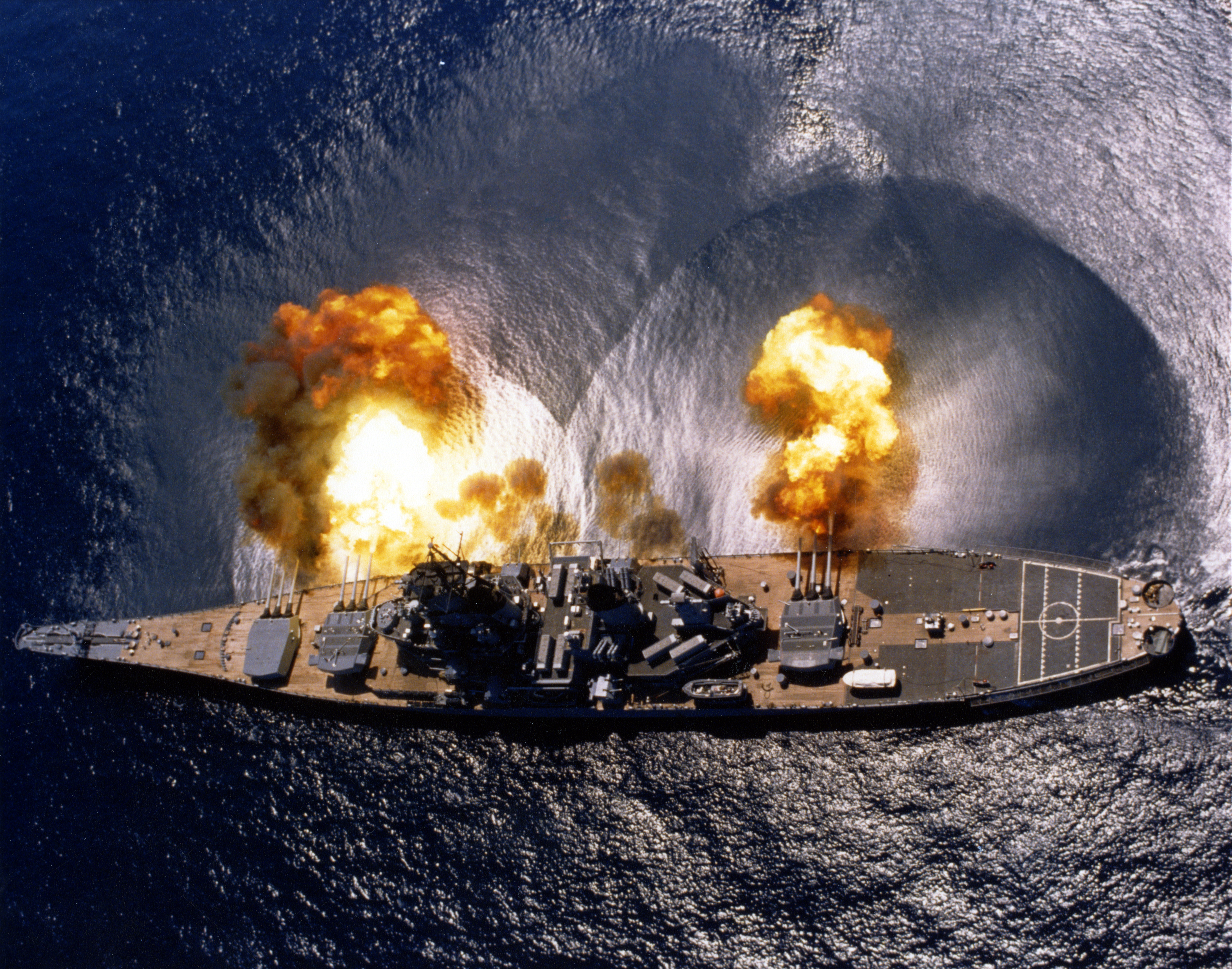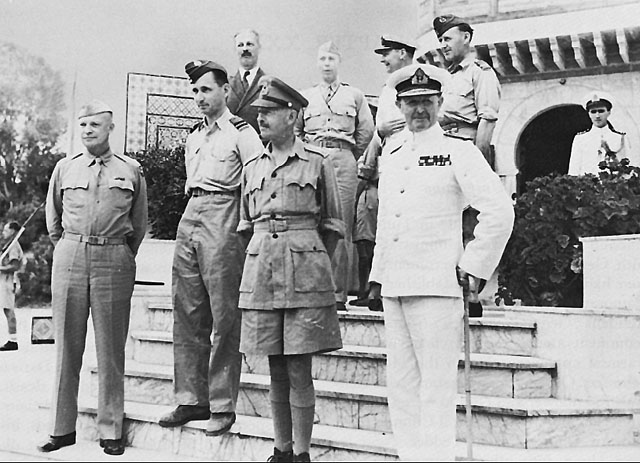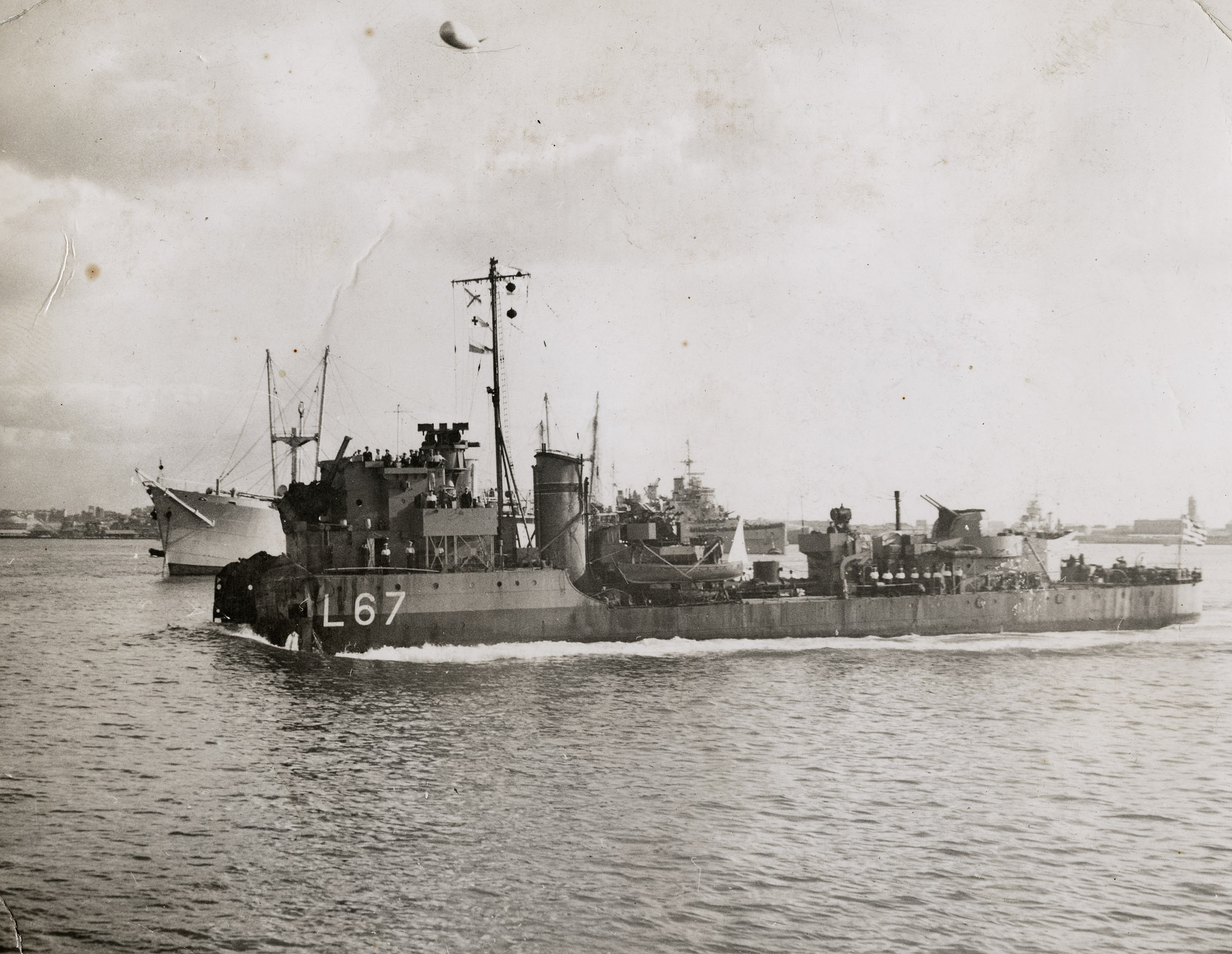|
Spyridon Avgeris
Spyridon Avgeris (, 10/23 September 1909 – 3 January 1972) was a Greek Navy officer who served as Chief of the Hellenic Navy General Staff (1963–67) and of the Hellenic National Defence General Staff (1967), retiring with the rank of vice admiral. Life Born on Salamis Island on 10 September 1909, Spyridon Avgeris entered the Hellenic Navy Academy on 9 October 1925 and graduated on 10 October 1929 as a Line Ensign. He was promoted to su-lieutenant on 13 October 1933, and lieutenant on 27 October 1937. He served aboard various warships, and specialized in naval artillery, attending the Gunnery School in 1937. During the Greco-Italian War and the subsequent German invasion of Greece (1940–41) he served as commander of a naval anti-aircraft battery at Mount Aigaleo. Following the Axis occupation of Greece, he served in 1941–42 in the collaborationist government's Ministry of National Defence. In February 1942 he tried to escape to the Middle East and join the forces of th ... [...More Info...] [...Related Items...] OR: [Wikipedia] [Google] [Baidu] |
Salamis Island
Salamis ( ; ) or Salamina () is the largest Greece, Greek island in the Saronic Gulf, about from the coast of Athens' port of Piraeus and about west of Athens center. The chief city, Salamina (city), Salamina, lies in the west-facing core of the crescent on Salamis Bay, which opens into the Saronic Gulf. On the eastern side of the island its main port, Paloukia, connects the island with Perama in the western part of Athens urban area through a frequent ferry line and is the second largest port in Greece in terms of passengers, after the port of Piraeus. Etymology The traditional etymology of Salamis derives it from the eponymous nymph Salamis (mythology), Salamis, the mother of Cychreus, the legendary first king of the island. A more modern theory considers "Salamis" to come from the root ''sal'' 'salt' and ''-amis'' 'middle'; thus ''Salamis'' would be the place amid salt water. A theory presented by Martin Bernal in his book Black Athena, which has been overwhelmingly rejecte ... [...More Info...] [...Related Items...] OR: [Wikipedia] [Google] [Baidu] |
Naval Artillery
Naval artillery is artillery mounted on a warship, originally used only for naval warfare and then subsequently used for more specialized roles in surface warfare such as naval gunfire support (NGFS) and anti-aircraft warfare (AAW) engagements. The term generally refers to powder-launched projectile-firing weapons and excludes self-propelled projectiles such as torpedoes, rockets, and missiles and those simply dropped overboard such as depth charges and naval mines. Origins The idea of ship-borne artillery dates back to the classical era. Julius Caesar wrote about the Roman navy's usage of ship-borne catapults against Celtic Britons ashore in his ''Commentarii de Bello Gallico''. The dromons of the Byzantine Empire carried catapults and Greek fire. From the Middle Ages onwards, warships began to carry cannons of various calibres. In the Battle of Tangdao in 1161, the Southern Song general Li Bao used huopao (a type of gunpowder weapons, possibly cannons) and fire arro ... [...More Info...] [...Related Items...] OR: [Wikipedia] [Google] [Baidu] |
Augusta, Sicily
Augusta (, archaically ''Agosta''; ; Ancient Greek, Greek and , Medieval: ''Augusta'') is a town and in the province of Syracuse, Italy, Syracuse, located on the eastern coast of Sicily (southern Italy). The city is one of the main harbours in Italy, especially for oil refineries (Sonatrach and others as part of the complex Augusta-Priolo) which are in its vicinity. Geography The city is situated in the province of Province of Syracuse, Syracuse and faces the Ionian Sea. The old town is an island, made in the 16th century by cutting an isthmus, now connected to the Sicilian mainland by two bridges. One bridge was built around the 12th or 13th century as part of the Frederick II of Swabia Viaduct. And the other, older bridge was built when the city was founded and is called the Porta Spagnola. Augusta is currently home to two ports. History Founded 27 centuries ago, Megara Hyblaea is one of the oldest Greek colonies of Sicily. It was destroyed by its rival Syracuse, was raised ... [...More Info...] [...Related Items...] OR: [Wikipedia] [Google] [Baidu] |
Allied Invasion Of Sicily
The Allied invasion of Sicily, also known as the Battle of Sicily and Operation Husky, was a major campaign of World War II in which the Allies of World War II, Allied forces invaded the island of Sicily in July 1943 and took it from the Axis powers, Axis forces (Kingdom of Italy and Nazi Germany). It began with a large Amphibious warfare, amphibious and airborne forces, airborne Military operation, operation, followed by a six-week land campaign, and initiated the Italian campaign (World War II), Italian campaign. To divert some of the Axis forces to other areas, the Allies engaged in several deception operations, the most famous and successful of which was Operation Mincemeat. Husky began on the night of 9–10 July 1943 and ended on 17 August. Strategically, Husky achieved the goals set out for it by Allied planners: the Allies drove Axis air, land and naval forces from the island, and the Mediterranean Sea, Mediterranean sea lanes were opened for Allied merchant ships for th ... [...More Info...] [...Related Items...] OR: [Wikipedia] [Google] [Baidu] |
Greek Corvette Sachtouris
HMS ''Peony'' was a of the Royal Navy. In 1943 she was transferred to the Royal Hellenic Navy (Greek navy) as RHNS ''Sachtouris'' (), serving throughout World War II and the Greek Civil War. She was returned to the Royal Navy in 1951 and scrapped in April 1952. Royal Navy Throughout her Royal Navy career ''Peony'' escorted convoys: primarily in home waters, but sometimes in the Mediterranean Sea and to Freetown in Sierra Leone. From late 1940 to early 1941 she was part of the 10th Corvette Group, Mediterranean Fleet based at Alexandria, with which she escorted numerous convoys to Malta. In February 1941 she was equipped for minesweeping as not enough minesweepers were available. In July 1941 she helped to transport troops to Cyprus. She undertook anti-submarine operations off Cyprus in the following months. Along with the Australian destroyer , three corvettes and two anti-submarine aircraft she attacked a U-boat on 8 October 1941, but the U-boat escaped. In December 1941 wh ... [...More Info...] [...Related Items...] OR: [Wikipedia] [Google] [Baidu] |
Greek Minesweeper Paralos
Greek may refer to: Anything of, from, or related to Greece, a country in Southern Europe: *Greeks, an ethnic group *Greek language, a branch of the Indo-European language family **Proto-Greek language, the assumed last common ancestor of all known varieties of Greek **Mycenaean Greek, most ancient attested form of the language (16th to 11th centuries BC) **Ancient Greek, forms of the language used c. 1000–330 BC **Koine Greek, common form of Greek spoken and written during Classical antiquity **Medieval Greek or Byzantine Language, language used between the Middle Ages and the Ottoman conquest of Constantinople **Modern Greek, varieties spoken in the modern era (from 1453 AD) *Greek alphabet, script used to write the Greek language *Greek Orthodox Church, several Churches of the Eastern Orthodox Church *Ancient Greece, the ancient civilization before the end of Antiquity *Old Greek, the language as spoken from Late Antiquity to around 1500 AD *Greek mythology, a body of myths or ... [...More Info...] [...Related Items...] OR: [Wikipedia] [Google] [Baidu] |
Minesweeper
A minesweeper is a small warship designed to remove or detonate naval mines. Using various mechanisms intended to counter the threat posed by naval mines, minesweepers keep waterways clear for safe shipping. History The earliest known usage of the naval mine dates to the Ming dynasty.Needham, Volume 5, Part 7, 203–205. Dedicated minesweepers, however, only appeared many centuries later during the Crimean War, when they were deployed by the British. The Crimean War minesweepers were rowboats trailing Grappling hook, grapnels to snag mines. Minesweeping technology picked up in the Russo-Japanese War, using aging torpedo boats as minesweepers. In Britain, naval leaders recognized before the outbreak of World War I that the development of sea mines was a threat to the nation's shipping and began efforts to counter the threat. Sir Arthur Wilson, 3rd Baronet, Sir Arthur Wilson noted the real threat of the time was a blockade aided by mines and not an invasion. The function of the ... [...More Info...] [...Related Items...] OR: [Wikipedia] [Google] [Baidu] |
Medal For Outstanding Acts
A medal or medallion is a small portable artistic object, a thin disc, normally of metal, carrying a design, usually on both sides. They typically have a commemorative purpose of some kind, and many are presented as awards. They may be intended to be worn, suspended from clothing or jewellery in some way, although this has not always been the case. They may be struck like a coin by dies or die-cast in a mould. A medal may be awarded to a person or organisation as a form of recognition for sporting, military, scientific, cultural, academic, or various other achievements. Military awards and decorations are more precise terms for certain types of state decoration. Medals may also be created for sale to commemorate particular individuals or events, or as works of artistic expression in their own right. In the past, medals commissioned for an individual, typically with their portrait, were often used as a form of diplomatic or personal gift, with no sense of being an award for ... [...More Info...] [...Related Items...] OR: [Wikipedia] [Google] [Baidu] |
Greek Armed Forces In The Middle East
After the fall of Greece to the Axis powers in April–May 1941, elements of the Greek Armed Forces managed to escape to the British-controlled Middle East. There they were placed under the Greek government in exile, and continued the fight alongside the Allies until the liberation of Greece in October 1944. These are known in Greek history as the Greek Armed Forces in the Middle East (Ελληνικές Ένοπλες Δυνάμεις Μέσης Ανατολής). Army In the face of the overwhelming German advance into Greece, several thousand Greek officers and soldiers were either evacuated, along with the Greek government, to Crete and then Egypt, in April–May 1941, or managed to flee, mainly via neutral Turkey, to the British-controlled Middle East. There a Greek army in exile started being formed, under British command and re-equipped with British arms. The core of this new military force was the "Phalanx of Egyptiote Greeks", from the Greek community in Egypt. On 15 ... [...More Info...] [...Related Items...] OR: [Wikipedia] [Google] [Baidu] |
Greek Government-in-exile
The Greek government-in-exile was formed in 1941, in the aftermath of the Battle of Greece and the subsequent occupation of Greece by Nazi Germany and Fascist Italy. The government-in-exile was based first in South Africa, then London, then, finally, from mid-1943, in Cairo, Egypt. There it came to be referred to as the "Cairo Government" (). It was the internationally recognised government during the years of the Axis occupation of Greece. It was headed by King George II, who evacuated Athens in April 1941 after the German invasion of the country, first to the island of Crete and then to Cairo, then to South Africa and London before returning to Cairo. He remained there until the German occupying forces withdrew from the country on 17 October 1944. The British wielded a significant amount of influence over the government-in-exile. Until 1944 it was also recognized as the legal Greek government by all Greek Resistance forces. In the occupied Greece, alongside the Axis-cont ... [...More Info...] [...Related Items...] OR: [Wikipedia] [Google] [Baidu] |
Middle East
The Middle East (term originally coined in English language) is a geopolitical region encompassing the Arabian Peninsula, the Levant, Turkey, Egypt, Iran, and Iraq. The term came into widespread usage by the United Kingdom and western European nations in the early 20th century as a replacement of the term Near East (both were in contrast to the Far East). The term "Middle East" has led to some confusion over its changing definitions. Since the late 20th century, it has been criticized as being too Eurocentrism, Eurocentric. The region includes the vast majority of the territories included in the closely associated definition of West Asia, but without the South Caucasus. It also includes all of Egypt (not just the Sinai Peninsula, Sinai) and all of Turkey (including East Thrace). Most Middle Eastern countries (13 out of 18) are part of the Arab world. The list of Middle Eastern countries by population, most populous countries in the region are Egypt, Turkey, and Iran, whil ... [...More Info...] [...Related Items...] OR: [Wikipedia] [Google] [Baidu] |
Hellenic State (1941–44)
Hellenic State (), also translated as Greek State, was used as the official name of the modern Greek state three times in its history: * First Hellenic Republic during the period of governance by Ioannis Kapodistrias in 1828–1832, when Greece was first constituted as a regular state after the Greek War of Independence. *The first few months of the Second Hellenic Republic The Second Hellenic Republic is a modern Historiography, historiographical term used to refer to the Greece, Greek state during a period of republican governance between 1924 and 1935. To its contemporaries it was known officially as the Hellenic ..., after which the name was changed to ''Hellenic Republic'' on 24 May 1924. * Hellenic State, during the period of Axis occupation (1941–1944) of the country during World War II, when the pro-Axis government renamed the country in opposition to the pro-Allies Kingdom of Greece, which remained in exile in Egypt. {{set index Political history of Greece ... [...More Info...] [...Related Items...] OR: [Wikipedia] [Google] [Baidu] |






